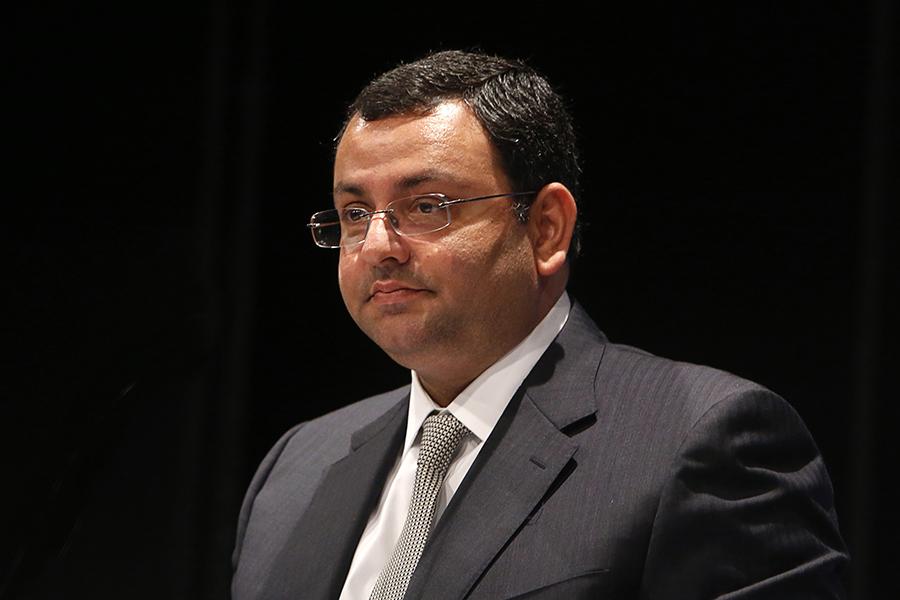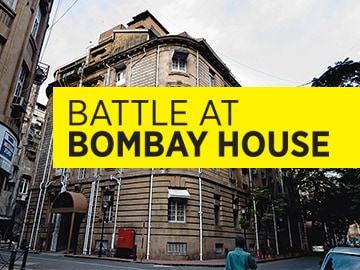Cyrus Mistry responds to allegations of bad management
The former chairman of Tata Sons says that board and shareholders were kept in the loop on key decisions and course of action always


 Cyrus Mistry, former Tata Group chairman
Cyrus Mistry, former Tata Group chairman
Image: Vivek Prakash / Reuters
In a standoff that shows no signs of de-escalation yet, Tata Sons’ recently ousted chairman Cyrus Mistry issued a strong denial on Tuesday to “insinuations” that the conglomerate’s dealings with estranged telecom partner Docomo was not in conformity with the “Tata culture and values.”
After being removed as the salt-to-software conglomerate’s chairman on October 24, media reports suggested that Mistry’s handling of Tata Teleservices’ separation from Docomo was one of the reasons that led to his untimely and forced departure from the corner office of Bombay House, the group’s headquarters in Mumbai.
In 2009, Docomo, a Japanese telecom firm had bought a 26.5 percent stake in Tata Teleservices for $2.6 billion. As per the terms agreed upon during the acquisition, Docomo had the right to sell its stake in India at a price, which was the higher of either the fair value of its investment at the time of the exit, or half the acquisition cost.
The Indo-Japanese telecom venture struggled in the wake of intense competition and an aggressive tariff war in the country, and in January 2014, Docomo communicated its intention to exit its investment in the venture at a price that was half the acquisition cost (around Rs7250 crore). But by that time, the Reserve Bank of India (RBI) had brought in a new regulation that stipulated that a foreign company can only exit an investment in India at its prevailing fair value (based on return on equity) and not higher than that.
As a result, when the Tatas applied to the RBI to buy out Docomo’s stake at a price that was higher than this fair value, the central bank declined the group’s proposal. In January 2015, Docomo filed a suit at the London Court of Arbitration, which subsequently awarded a sum of $1.15 billion to Docomo, to be paid by its Indian partner.
The $103 billion-conglomerate sought the RBI’s permission to make this payment again, but the latter didn’t change its previous stance and disallowed the proposed transaction. Frustrated with its investment stuck in India, Docomo sought enforcement of the arbitration award in the Delhi High Court. A final verdict on the case is pending. Tata Sons has maintained that it is willing to pay the money to Docomo if the court rules that it is allowed to do so under Indian law and has even deposited over Rs8,000 crore with the court, to demonstrate its good intent.
A section of the media had reported last week that Mistry’s handling of the dispute with Tata Teleservices and hesitance to compensate Docomo in accordance with arbitration court’s decision was against Ratan Tata’s commitment to the Japanese partners that their investment in India would be protected anyhow.
“The suggestion that Ratan Tata and the trustees (of Tata Trusts that collectively control a 66 percent stake in Tata Sons) would not have approved of the manner in which the litigation was conducted is contrary to what transpired,” says Tuesday’s statement issued by Mistry’s office. “A number of discussions on the Docomo situation had been held in the Tata Sons board. Mr. Mistry had always mentioned that the Tatas should honour all commitments within the law. This stance is based on Tata Sons' board view and was always consistent with the series of board meetings in which the Docomo issue was discussed.”
The statement stated that the conglomerate’s leadership, under Mistry’s stewardship, had always maintained that the Tatas will honour their commitment to Docomo, as per the provisions of the law. To further drive home the point that the Tata Group wasn’t averse to honouring its commitment to Docomo, the statement said that that was the reason why the London Court of Arbitration’s verdict wasn’t challenged by the business house.
“Throughout the above process, Ratan Tata and NA Soonawala (trustee of Sir Dorabji Tata Trust and Allied Trusts and Sir Ratan Tata Trust and Allied Trusts) were kept informed and they participated in separate meetings held with Mr. Mistry,” says the statement from Mistry’s office. “They also participated in the meeting with the legal counsel [who also happened to be a trustee of the Dorabji Tata trust (a reference to Darius Khambata)] and who represented Tatas in the litigation. At all times Ratan Tata and Soonawala concurred and approved the course of action adopted by Tatas and as advised by legal counsel.”
“In light of the above facts, to suggest that Mr. Mistry acted on his own, or contrary to “Tata values”, or without the knowledge and/or concurrence of Ratan Tata and Soonawala is as false as it is mischievous,” the statement concluded.
This isn’t the first time that Mistry, son of construction tycoon Pallonji Mistry, whose family is the single largest shareholder in Tata Sons with an 18.4 percent stake, has sought to clear his name by responding to allegations of mismanagement levelled against him since his sacking.
Another decision taken by the conglomerate under Mistry’s leadership, which reportedly irked Tata Sons’ majority shareholders was Tata Power’s acquisition of Welspun Energy’s renewable power assets. Again, it was reported that the majority shareholders of Tata Sons weren’t kept in the loop about this transaction.
In an earlier statement issued on October 28, Mistry’s office clarified that the prospective acquisition of these assets was discussed with the board of Tata Sons on multiple occasions. These interactions included a detailed presentation from Tata Power CEO Anil Sardana to the Tata Sons board of directors, and another discussion while seeking Tata Sons’ approval (it is the principal promoter shareholder in Tata Power, as in other group companies) to fund the transaction.
This statement also mentioned that Tata Sons’ directors Nitin Nohria and Vijay Singh discussed the matter with Ratan Tata and Soonawala and approved the transaction, but noted that “the proposal should have come to the trustees earlier.”
To be sure, none of the reasons cited for the promoters’ discontentment with Mistry that led to the decision to sack him have been offered by Tata Sons or Tata Trusts officially. They have all been reported in the media citing sources close to the development.
Meanwhile, Tata Motors, a Tata Group company that hasn’t done very well in the last few years, reported encouraging sales figures for the month of October. In a statement issued on Tuesday, Tata Motors said that its sales in October rose 21 percent year-on-year to 52,813 vehicles.
“The company continued to witness year-on-year growth in certain key segments in October 2016, with the company’s passenger vehicles growing by 28 percent, recording highest sales in last 4 years,” said Tata Motors’ statement. The growth in passenger car sales last month was buoyed by festive buying and the carmaker’s newly launch hatchback Tiago, which has received a good response from potential car buyers. "The Company’s Commercial Vehicles business recorded the highest sales in this year, grew by 15 percent and LCVs (light commercial vehicles) continued to grow by 21 percent, due to strong demand in festive season. The MHCV (medium and heavy commercial vehicles) sales reversed the trend and grew by 9 percent after four months of decline. The Export business grew by 39 percent on account of strong demand for Tata Motors’ commercial vehicles." ALSO READ:
ALSO READ:
First Published: Nov 01, 2016, 17:26
Subscribe Now